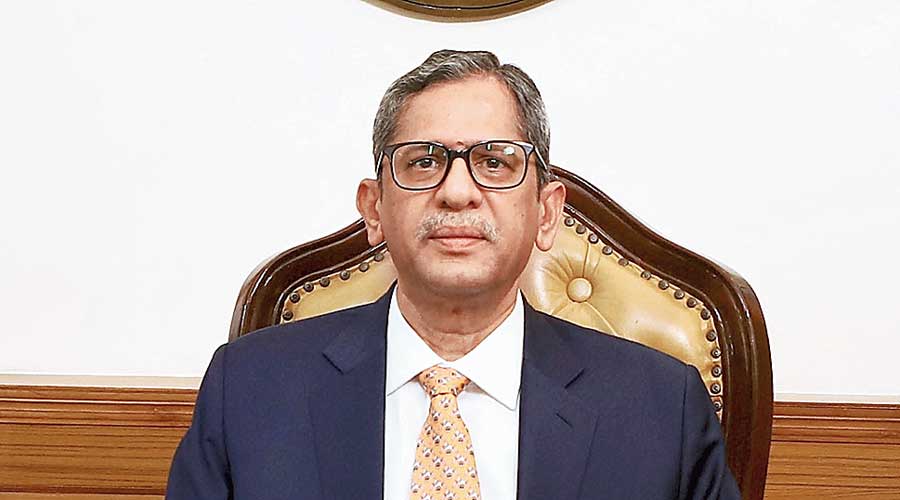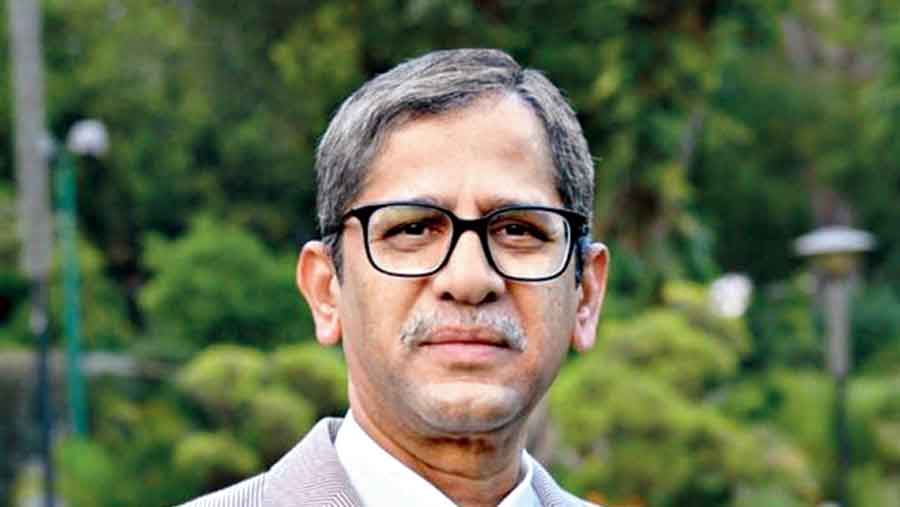Chief Justice of India N V Ramana on Saturday said political opposition is translating into hostility which is not a sign of a healthy democracy and asserted that strong parliamentary democracy demands "strengthening the Opposition as well".
There used to be mutual respect between the government and the Opposition, but the space for opposition is diminishing and laws are being passed without detailed deliberation and scrutiny, he lamented at an event here.
The CJI said the people expect the court to stand as a counterweight to legislative and executive excess and this gains gravity, particularly whenever the Opposition is missing in action.
Instead of engaging in meaningful debates for furthering democracy, politics has become acrimonious, he said.
The diversity of opinion enriches polity and society. Political opposition should not translate into hostility, which we are sadly witnessing these days. These are not signs of a healthy democracy, CJI Ramana said.
He was speaking at an event organised at the Rajasthan Assembly by the Commonwealth Parliamentary Association (CPA) on '75 years of Parliamentary Democracy'.
Ramana, at an earlier event, said non-filling up of judicial vacancies was the main reason for the huge pendency of cases after Union Law Minister Kiren Rijiju flagged the backlog of five crore such cases.
The CJI also called for steps to address the "grave" issue of the high number of undertrial prisoners that is affecting the criminal justice system, saying there is a need to question procedures that lead to prolonged incarceration without any trial.
Out of 6.10 lakh prisoners in the country, nearly 80 per cent are undertrial prisoners, he said at an event here and lamented that in the criminal justice system, the process "is a punishment".
At the event of the Rajasthan assembly, the CJI raised concerns over the quality of legislative performance.
"There used to be mutual respect between the government and opposition. Unfortunately, space for opposition is diminishing," he said
"Sadly, the country is witnessing a decline in the quality of legislative performance," he said, adding laws are being passed without detailed deliberations and scrutiny.
He said that if every wing of the state functions with efficiency and responsibility, the burden on others would reduce considerably.
If the general administration is carried out efficiently by the officers, a lawmaker need not toil for ensuring basic facilities for his electorate.
He said that the Constitution does not specify the minimum number of days for which the state assembly must meet every year. However, there is no doubt that the citizens will definitely benefit from longer engagements.
Highlighting the significance of parliamentary debates and parliamentary committees, the CJI said that strengthening parliamentary democracy demands strengthening the opposition as well.
The leaders in the Opposition used to play a stellar role. There used to be a lot of mutual respect between the government and the opposition. Unfortunately, the space for opposition is diminishing. We are witnessing laws being passed without detailed deliberation and scrutiny, he said.
He said that the increasing state intervention in the lives of the population, dissatisfaction among the public about the other two wings and the rising awareness of rights have increased the public expectations from the judiciary.
In a modern democracy, the people expect the court to stand as a counterweight to legislative and executive excess. This gains gravity, particularly whenever the opposition is missing in action, he said.
Ramana said that as a judge at times he wonders as to how does one trace the legislative intent behind the enactments. Instead of engaging in meaningful debates for furthering democracy, politics has become acrimonious, he added.
The CJI said that a strong, vibrant and active Opposition helps to improve the governance and corrects the functioning of the government.
In an ideal world, it is the cooperative functioning of the government and the Opposition which will lead to a progressive democracy.
Referring to his views on a decline in the quality of debate on last year's Independence Day, he said that his observations were perceived in some quarters as criticism of lawmakers.
When I expressed those sentiments, my only concern was the burden imposed on the judiciary because of imperfections in lawmaking.
"'If the bills are thoroughly and dispassionately debated and all the well-meaning suggestions accommodated, we will have better laws. Laws without deficiency save the judiciary from the avoidable burden of litigation, he said.
He also suggested lawmakers have quality assistance from legal professionals so that they are able to contribute to the debates meaningfully. He said that lawmaking is a complicated process and one cannot expect every lawmaker to have a legal background.
The CJI urged the youth to be in touch with the past and present issues. He said that in today's world, true empowerment lies in true awareness.
Be aware, be informed and it is only you who can decide your destiny. The future of this nation depends on your active participation in public life, he said.











